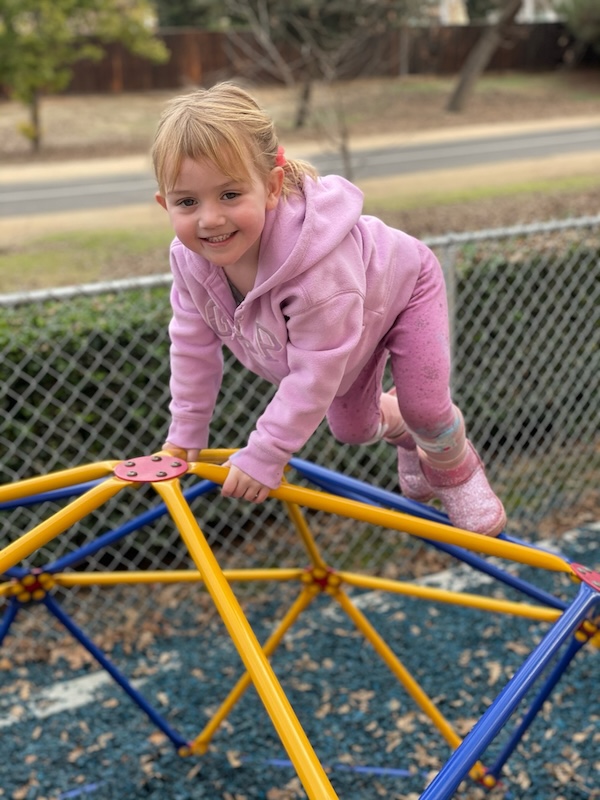
If there’s one thing kids love, it’s begging to bend the rules. Ice cream for dinner, staying up until midnight, or spending the whole day on the couch?
If it were up to them, that would be the norm. These types of breaks in routine might seem perfectly reasonable to kiddos, but as any parent knows, no matter what wildcard changes to routine kids request, the thing they really crave deep down is a solid structure.
This can mean a regular bedtime routine, morning rituals before school, regular eating habits, fitness routines, homework habits, or anything else that helps them maintain a framework as they learn and grow.
Healthy routines for children are central to instilling healthy habits that can grow into adulthood – and creating a sense of security and predictability as they grow. They lay a positive groundwork for the future while also providing a solid foundation for daily family life, so they always have a solid structure to return to as they explore the world around them.
The Importance of Healthy Routines for Children’s Development
Routines provide a structured environment that helps kids understand what they can expect each day, which can ease anxiety and increase their sense of control over their day. Here are some specific ways daily routines impact a child’s development.
Physical Health
Routines centered around regular meal times, sufficient sleep, and regular physical activity ensure that kids meet their basic needs.
A well-established bedtime routine, for example, helps regulate sleep patterns, which is important for their growth, brain development, and overall physical health. Similarly, scheduled meal times are helpful for fostering healthy eating habits.
Emotional Stability
Kids thrive on predictability. Knowing what to expect throughout the day, such as designated playtime, homework sessions, or family meals, helps kids feel more secure. This can help them develop emotional resilience that will serve them throughout their lives.
Social and Behavioral Development
Routines usually involve activities that promote social bonding, like family dinners or group play.
These experiences teach children how to communicate, share, and collaborate with others, which are crucial social skills. Additionally, routines help children develop a sense of responsibility and discipline as they learn to follow rules and complete tasks independently.
Better Long-Term Health
Healthy habits, like routine exercise, balanced nutrition, and healthy hygiene, contribute to a child’s physical well-being.
Children who establish healthy routines early on can carry these traits into their adulthood, reducing their risk of chronic health issues like obesity, diabetes, and heart disease.
Independence
By incorporating healthy habits into daily routines, kids learn to take responsibility for their own well-being as they get older.
Simple tasks like brushing their teeth, packing their school lunch, or choosing a healthy snack foster a sense of independence. This autonomy boosts their self-esteem and teaches them the value of taking care of themselves.
How Healthy Routines for Children Impact Cognitive Development
Home routines for children play a significant role in all facets of development, from cognitive growth to social and emotional skills.
Brain development during early childhood is rapid, and routines can play a part in optimizing this growth.
Reinforces Neural Connections
The brain thrives on repetition, and routines offer just that. Whether it’s reading every night, practicing a musical instrument, or exercising every afternoon, repetitive activities help reinforce neural connections. This strengthens cognitive functions like memory, problem-solving, and decision-making.
Promotes Executive Functioning
Executive functions involve working memory, flexible thinking, and self-control, like time management and planning. Routines help develop these skills by inviting children to plan, organize, and complete tasks that are important to a successful daily life.
For instance, school routines for children on weekday mornings that involve getting dressed, brushing teeth, and packing a bag teach kids how to manage time and follow steps in a logical sequence.
Reduces Cognitive Load
When home routines for children are consistent, kids don’t have to constantly think about what comes next. This frees up cognitive energy that can be channeled toward learning new information or solving problems.
Healthy home routines for children can set kids up for a happier and healthier adulthood. Routines foster important life skills that will serve them in the future while also providing a happier and more secure home life in the present.
Foster Routine Through Regular Extracurricular Activities
A great way to foster a sense of routine is to provide kids with consistent, ongoing activities, from fitness to education.
At America’s Kids in Motion, we encourage kids to enjoy ongoing physical activity with ninja lessons, swim lessons, dance lessons, and more, all under one roof. If you’re in the Clovis, California, area, contact us today to learn more about our offerings.




